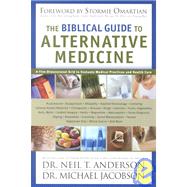| Foreword | 9 | (1) | |||
|
|||||
| Introduction | 10 | (6) | |||
| Part 1---A Biblical Grid for Evaluating Medical Treatments | |||||
|
16 | (8) | |||
|
24 | (11) | |||
|
35 | (10) | |||
|
45 | (12) | |||
|
57 | (16) | |||
|
73 | (14) | |||
|
87 | (18) | |||
|
105 | (11) | |||
| Part 2---Evaluating Medical Systems | |||||
|
116 | (13) | |||
|
129 | (12) | |||
|
141 | (6) | |||
|
147 | (17) | |||
|
164 | (14) | |||
|
178 | (16) | |||
|
194 | (14) | |||
|
208 | (8) | |||
| Part 3---Evaluating Alternative Therapies | |||||
|
216 | (8) | |||
|
224 | (10) | |||
|
234 | (13) | |||
|
247 | (13) | |||
| Part 4---To Your Good Health | |||||
|
260 | (8) | |||
| Final Thoughts The Most Critical Step to Biblical Wholistic Health | 268 | (4) | |||
| Appendix A Where Are the Healing Miracles Today? | 272 | (8) | |||
| Appendix B Scientific Research Results | 280 | (14) | |||
| Endnotes | 294 | (17) | |||
| Glossary | 311 | (6) | |||
| Scripture Index | 317 | (4) | |||
| Index | 321 |








